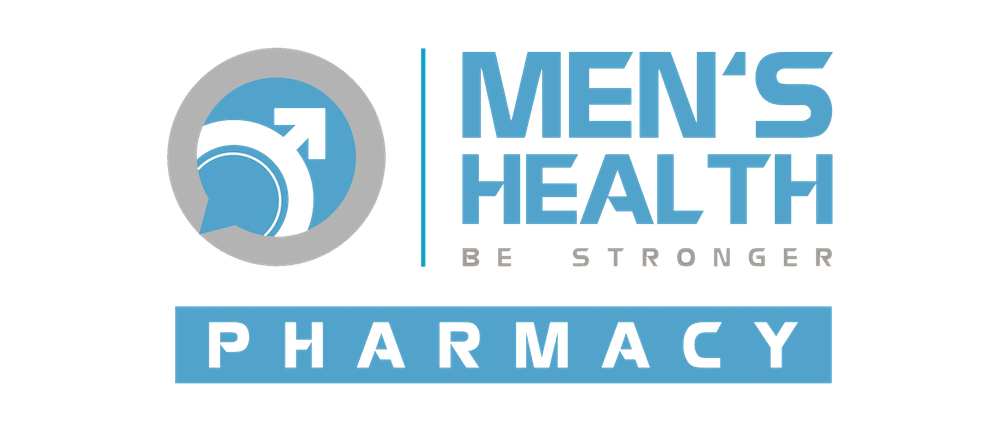Testosterone is the primary male hormone responsible for sexual function, muscle development, energy levels, bone strength, mood regulation, and overall well-being. While testosterone naturally declines with age—typically 1–2% per year after the age of 30—many men experience an accelerated drop due to stress, poor sleep, obesity, medications, or underlying health issues.

The good news: many evidence-based lifestyle strategies can significantly improve testosterone naturally without medication.
This guide explains the most effective and scientifically supported methods to naturally boost testosterone levels.
1. Improve Sleep Quality: The #1 Natural Testosterone Booster
Poor sleep is one of the strongest suppressors of testosterone. Most testosterone is produced during deep sleep (REM and slow-wave cycles).
Why sleep matters:
- Studies show that sleeping less than 5–6 hours can reduce testosterone by 10–15% within one week.
- Fragmented sleep disrupts the hypothalamus–pituitary–gonadal (HPG) axis.
How to improve sleep naturally:
- Aim for 7–9 hours per night
- Reduce screen exposure 1 hour before bed
- Maintain a cool, dark sleeping environment
- Avoid caffeine after 3 PM
- Treat sleep apnea if symptoms exist (snoring, choking during sleep, daytime fatigue)
Sleep is the fastest and most reliable natural method to restore testosterone levels.
2. Reduce Excess Body Fat (Especially Belly Fat)
Obesity is a major cause of low testosterone because fat tissue increases aromatase, an enzyme that converts testosterone into estrogen.
How fat affects hormones:
- Increased aromatase → lower testosterone, higher estrogen
- Insulin resistance → reduced LH release from the pituitary
- Chronic inflammation → suppression of testicular function
Effective fat-loss tips for boosting testosterone:
- Combine strength training + moderate cardio
- Reduce sugar and refined carbohydrates
- Increase protein and healthy fats
- Maintain a caloric deficit if overweight
Losing even 5–10% of body weight can significantly increase testosterone levels.

3. Strength Training and High-Intensity Workouts
Exercise is one of the most powerful natural testosterone boosters—particularly resistance training.
Best exercises for hormone optimization:
- Squats
- Deadlifts
- Bench press
- Pull-ups
- Rows
- Weighted lunges
Why they work:
Compound movements stimulate large muscle groups → increasing growth hormone and testosterone.
HIIT (High-Intensity Interval Training):
Short bursts of intense exercise followed by short rest periods have been shown to boost testosterone and insulin sensitivity.
Avoid overtraining, as excessive endurance exercise (long-distance running, chronic high-volume training) can actually lower testosterone.
4. Eat a Testosterone-Supporting Diet
A balanced diet rich in essential nutrients helps optimize hormone production.
Key nutrients backed by research:
1. Zinc
Required for testosterone synthesis.
Sources: oysters, beef, eggs, pumpkin seeds, nuts.
2. Vitamin D
Acts like a hormone and supports testicular function.
Sources: sunlight, salmon, fortified dairy.
3. Healthy fats (Omega-3 & monounsaturated fats)
Help maintain cholesterol—the building block of testosterone.
Sources: olive oil, avocados, nuts, fatty fish.

4. Magnesium
Improves free testosterone levels.
Sources: leafy greens, almonds, whole grains.
5. Protein
Supports muscle mass and prevents metabolic syndrome.
Sources: poultry, eggs, legumes, lean meats.
Foods known to support testosterone:
- Eggs
- Tuna, salmon, sardines
- Beef (in moderation)
- Pomegranates
- Ginger
- Dark leafy vegetables
- Dark chocolate (70% cacao+)
Foods that LOWER testosterone:
- Excessive soy
- Ultra-processed foods
- Trans fats
- Sugary drinks
- Excess alcohol
- High-calorie junk food
5. Reduce Stress and Lower Cortisol Levels
Chronic stress elevates cortisol, a hormone that directly suppresses testosterone.
Why cortisol lowers testosterone:
- Competes with testosterone for cholesterol (the same building block)
- Reduces GnRH, LH, and FSH release
- Increases inflammation
How to reduce cortisol naturally:
- Daily deep breathing (5–10 minutes)
- Meditation
- Walking outdoors
- Limiting stimulants
- Managing workload and sleep schedule
Stress reduction is essential for long-term hormone balance.
6. Optimize Sexual Activity and Healthy Relationships
Regular sexual activity is associated with higher testosterone.
Why?
- Sexual arousal increases dopamine
- Dopamine directly stimulates testosterone production in the testes
- Frequent intimacy reinforces the hypothalamic hormone pathways
Healthy emotional connection and positive sexual experiences contribute to improved hormone levels.
7. Limit Alcohol and Avoid Nicotine
Alcohol lowers testosterone by:
- Damaging Leydig cells in the testes
- Increasing aromatization (T → estrogen)
- Impairing liver function (reduced hormone metabolism)
Nicotine reduces testosterone through:
- Vasoconstriction (poor blood flow to testes)
- Oxidative stress
- Reduced LH levels
Men looking to boost testosterone should reduce alcohol and avoid smoking altogether.

8. Avoid Excess Heat Exposure to the Testicles
Testosterone and sperm are optimally produced at temperatures 2–4°C below body temperature.
Avoid:
- Hot tubs
- Long sauna sessions
- Tight underwear
- Keeping laptops on the lap
- Long hours of driving without breaks
Cooling the testicles can help preserve hormonal balance and fertility.
9. Supplement Wisely (If Needed)
Evidence-based supplements that support testosterone:
✔ Vitamin D3
For men with low blood levels (<30 ng/mL)
✔ Zinc
Helps especially in men with deficiency or high sweat loss.
✔ Magnesium
Improves free testosterone.
✔ Ashwagandha
Shown to reduce cortisol and increase testosterone in clinical trials.
✔ Fenugreek extract
Helps increase libido and free testosterone.
✔ D-Aspartic Acid
May support LH release in some men.
Note: Supplements work best when correcting deficiencies—not as standalone solutions.
10. Identify and Treat Underlying Medical Conditions
Several health disorders suppress testosterone naturally:
- Type 2 diabetes
- Hypothyroidism
- Metabolic syndrome
- Sleep apnea
- Chronic liver or kidney disease
- Pituitary dysfunction
- Low vitamin D or zinc deficiency
Treating the underlying cause is one of the most effective ways to restore natural hormone balance.
Conclusion: Boosting Testosterone Naturally Requires a Holistic Approach
To naturally increase testosterone levels, men must focus on:
- Sleeping well
- Reducing body fat
- Strength training regularly
- Eating a nutrient-dense, hormone-supportive diet
- Managing stress and lifestyle habits
- Avoiding excessive alcohol and nicotine
- Treating underlying medical issues
These strategies not only improve testosterone but also enhance energy, mood, libido, muscle mass, fertility, and long-term men’s health.






